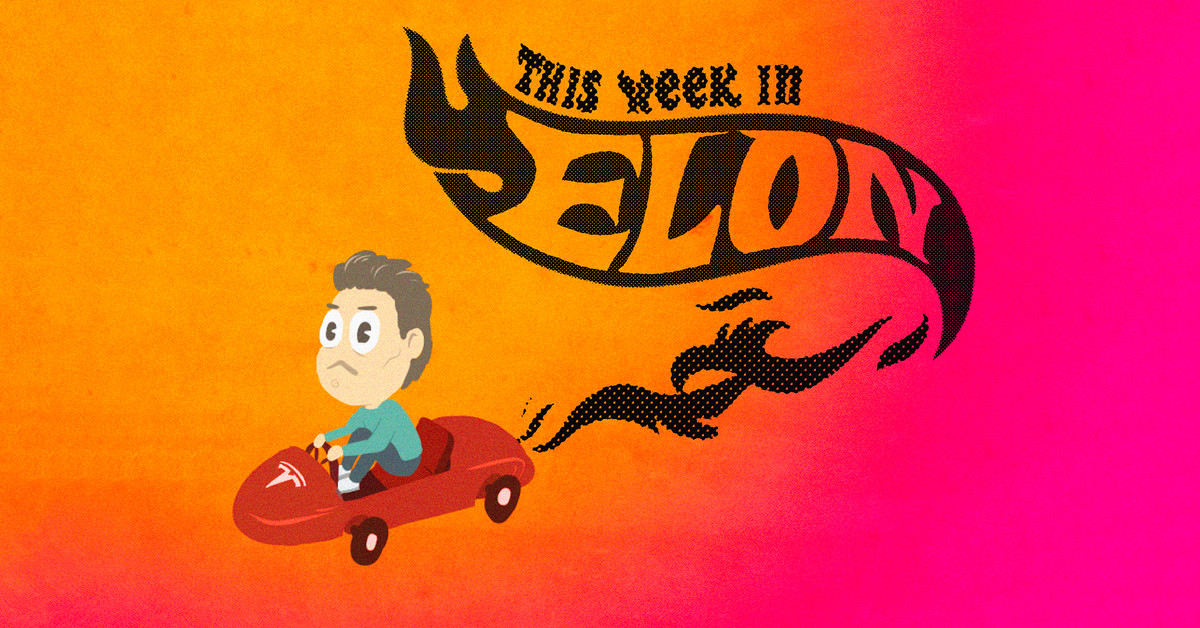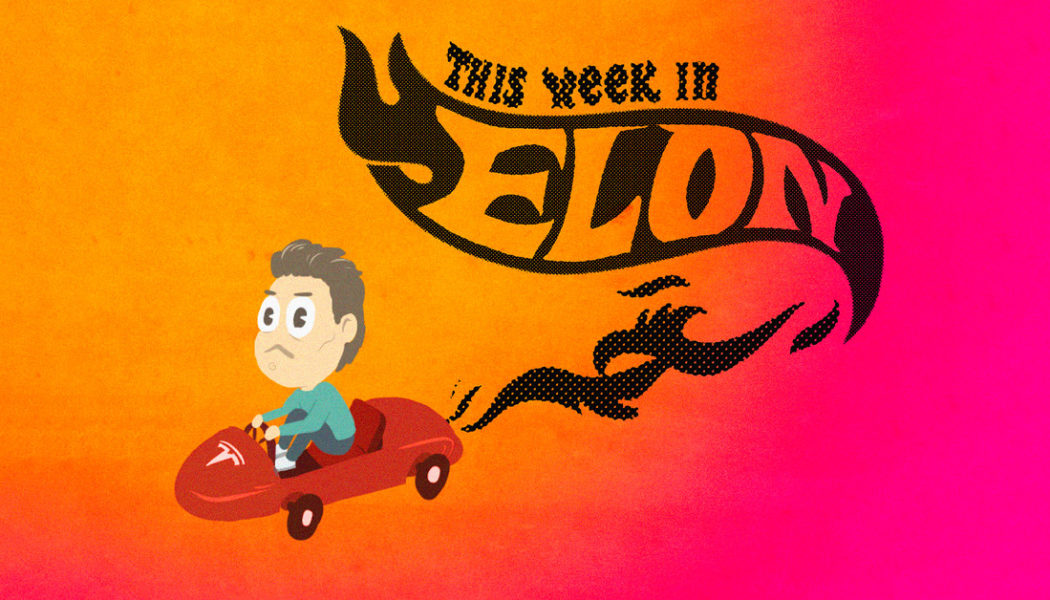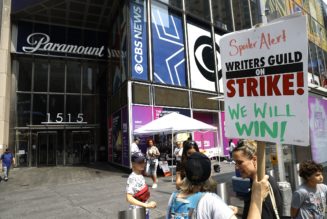
Hello! Welcome (or welcome back) to This Week in Elon, The Verge’s occasionally revived newsletter for when there’s Too Much Elon News. And, I mean, there’s always too much Elon news. But what’s happening right now feels worth digging into more deeply. So, let’s get into it.
On Tuesday, Musk demanded Tesla employees come back to the office or “pretend to work somewhere else,” which is an odd thing to say for a guy who splits his time between cities and at least four different companies. He’s also looking to cut about 10 percent of Tesla’s workforce, Reuters reported this morning, based on his “super bad feeling” about the economy, and all I’m saying is I don’t want to do layoffs, so I’m going to make you miserable enough to quit would not be a particularly off-brand management tactic for Musk.
“Lots of luck on his trip to the moon,” President Joe Biden said when he was asked about Musk’s thinking. Musk’s response: “Thanks Mr President!” And, uh, thanks for paying for it!
Meanwhile, Musk tweeted last night that he’s pushing Tesla’s AI Day to September 30th because he’s hoping to have a working prototype of the Optimus robot by then. (And by “working,” I’m assuming he doesn’t mean in the “it’s a person dancing in a suit” sense.)
But the real story in the Musk-iverse, and the real reason we’re up and running again here at This Week in Elon, is Twitter. That story begins, more or less, on April 4th of this year, when your friendly neighborhood oligarch bought 9.2 percent of Twitter’s shares. First, Musk was just an investor, then he was going to join the company’s board, then he decided against it because he evidently decided he wanted to buy Twitter instead. Twitter’s board initially wasn’t interested and deployed a poison pill, then thought the better of the whole thing and decided, yeah, sure, let’s sell — something, something fiduciary responsibility to shareholders.
So, now Musk is on the hook for Twitter at $54.20 a share, which means he has to pony up about $44 billion. That’s not easy, even when you have approximately all the money in the known universe! He sold $8.4 billion of his Tesla shares to finance the thing, and he talked Larry Ellison and some of his other rich friends into ponying up their own billions to help. Then, Musk got cold feet and declared the deal “temporarily on hold,” which is not a real thing, all the while spending a lot of time complaining about spambots on the platform. (In his defense, there are a lot of people with six followers “giving away millions in crypto” in his replies.)
So, where does this leave the deal now? Swirling in chaos and otherwise pretty much where it was eight weeks ago. Twitter continues to remind Musk that they, like, signed a contract with lawyers and everything, and it intends to make Musk follow through on the deal. As of this morning, in fact, it has cleared what’s known as the Hart-Scott-Rodino waiting period, which is a badly named procedural thing that basically means government antitrust regulators aren’t planning to take any action on the deal.
Meanwhile, that deal seems a little more expensive every day: Tesla’s stock is down almost 40 percent since April 4th, and Twitter’s competitors like Meta and Snapchat are down between 15 and 65 percent since then, too. I’d bet more than $44 billion that Musk would offer a lot less than $54.20 a share for the company if he could start the process over. But hey, richest guy in the world, he’ll be fine. To quell some of the Tesla panic, he even promised to put up another $6 billion of his own money instead of borrowing it against his shares, which investors liked.
This is all… a lot. But if we assume the deal’s going through — which, again, looks like the most likely outcome — the most interesting question in the coming months is what does an Elon-owned Twitter look like? We’ve been writing about that a lot at The Verge, from Musk’s deafening silence after the livestreamed shooting in Buffalo to his many, mostly nonsensical, thoughts about open sourcing algorithms and free speech. So far, Musk has stuck to his follow-the-laws answers for how to think about content moderation, but as The Verge’s editor-in-chief Nilay Patel likes to say, that’s a baby idea for babies. This stuff is going to get real, and complicated, fast.
Or maybe not? It’s increasingly not that clear that there’s going to be much of a Twitter left for Musk to own. Musk has spent a lot of time in recent weeks publicly trashing the team he’s supposedly taking over, both for their work and their policies, and talking about how bloated the company is. CEO Parag Agrawal fired a couple of Twitter’s top leaders, Jack Dorsey left the board, and anything that smells like a long-term bet is being shut down. The employees who are left seem to just be… tired? Jay Sullivan, the company’s newly promoted head of product, called out the “chaos tax” of the Musk takeover, which is as good an explanation of the overall Musk Effect as I’ve ever heard.
And while the financial details of Musk’s Twitter takeover might not be changing, the world around them is. The economic situation looks bleak for the foreseeable future, regulators around the world — but especially in the EU — continue to press on questions of content moderation, the Supreme Court suddenly seems like it’s about to Have Opinions about social media, Russia and Ukraine are at war, we’re edging closer to another presidential election season, and I don’t know, the metaverse is a thing? Uncertainty is everywhere right now.
Musk has his share of personal chaos, too, though I’m reluctant to ever call anything “potential problems for Elon Musk” because those don’t seem to actually exist. Still, there’s that Insider story from a couple of weeks ago that said SpaceX reportedly paid $250,000 to settle a sexual harassment allegation from a flight attendant on his plane; the story claimed, among other things, that Musk offered to buy her a horse in exchange for sexual favors. Musk continues to deny the allegations loudly and repeatedly, saying things about hiring a “hardcore litigation department,” and promises that “there will be blood.” You’ve got to wonder if he watched the circus of the Depp-Heard defamation trial and started making a list of defamation-lawsuit targets in his head.
The SEC is also investigating the way Musk filed investment paperwork leading up to the Twitter bid, but you know what, never mind, the SEC will fine him like $60 and we’ll all move on.
Okay, I think we’re roughly caught up. We’re going to spend the next few months here looking into all the goings-on in Musk Land, all the ways Elon Elons, and especially what it means for the richest person on the planet to own one of our most important social networks. You absolutely cannot deny that Musk is good at Twitter — honestly, is anyone better at Twitter? — but will he be good for Twitter? And what does that even look like?
(We need your help in all this, by the way. If you read something interesting about Elon, have a question, see a filing, or just roll your eyes at his latest shitpost, tell us about it! Shoot an email to elon@theverge.com and you’ll reach the whole crew behind this newsletter. We’d love to hear what you’re thinking about.)
We have but one rule here at This Week in Elon, and that is this: always assume the most ridiculous thing is going to happen, because this is Elon Musk we’re talking about, and the most ridiculous thing almost always happens. So, we’ll be back here in a week when a bunch of Optimus robots are running Twitter and just absolutely crushing it. Talk to you then.








